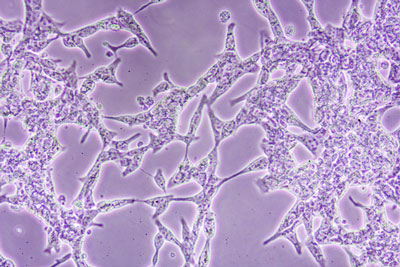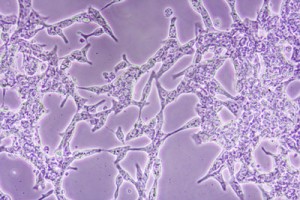NICE publishes draft guidance for two prostate cancer treatments
Posted: 8 June 2015 |
The National Institute for Health and Care Excellence (NICE) has launched public consultations on draft recommendations for two prostate cancer drugs…


The National Institute for Health and Care Excellence (NICE) has launched public consultations on draft recommendations for two separate prostate cancer drugs.


The guidance makes recommendations on whether or not the treatments should be routinely funded by the NHS.
NICE is recommending radium-223 dichloride (also called Xofigo) as a treatment for some people with prostate cancer which has stopped responding to hormone therapy and has spread to the bone.
Data suggest radium-223 is effective in delaying the progression of prostate cancer
The draft guidance says the drug appears to be particularly effective for those who have already been treated with the chemotherapy drug, docetaxel. It also says the drug should only be prescribed if the company makes the treatment available at a discounted rate.
Professor Carole Longson, director of the NICE Health Technology Evaluation Centre, said, “Prostate cancer is the most common cancer in men and is responsible for more than 1 in 10 male cancer deaths. It is important that the NHS can provide these people with affordable treatments that will make the most difference to their lives.
“We are pleased that the evidence for radium-223 dichloride was strong enough to issue a provisional recommendation. The information provided by Bayer suggests that radium-223 is effective in delaying the progression of prostate cancer and can prolong survival. The evidence also suggests that radium-223 has similar effectiveness to abiraterone.”
NICE guidance says degarelix depot is not cost-effective compared to LHRH agonists
Meanwhile, NICE has issued draft guidance not recommending degarelix depot to treat advanced, hormone dependent prostate cancer. The draft NICE guidance says it is not a cost-effective drug compared with the currently available standard treatment – LHRH agonists – and there is also no way of identifying the people who would benefit the most from it.
Professor Longson explained, “Clinical experts highlighted that degarelix depot could be particularly beneficial to people whose prostate cancer had spread to their spine and who might develop spinal cord compression.
“The independent Appraisal Committee had previously made a provisional positive recommendation for degarelix to treat people who already present with signs and symptoms of spinal cord compression, but clinical experts said that using the treatment at this stage would not be appropriate.
“The committee discussed if it could be possible to reliably identify people with spinal metastases who have a higher risk of spinal cord compression. Unfortunately, based on the evidence and inputs from the experts, it concluded that it was not possible to identify the people who may develop spinal cord compression beyond those people with spinal metastases.
“The committee could therefore not recommend the drug.”
Professor Longson added, “It is always disappointing when NICE is unable to recommend a treatment. People who are currently taking the drug can continue with it until they and their doctor consider it suitable to stop.”
The draft guidance for both treatments is now with consultees. Once the consultations close, the NICE Appraisal Committees will consider all comments received and develop further draft guidance for both drugs.
Related organisations
National Institute for Health and Clinical Excellence (NICE)




